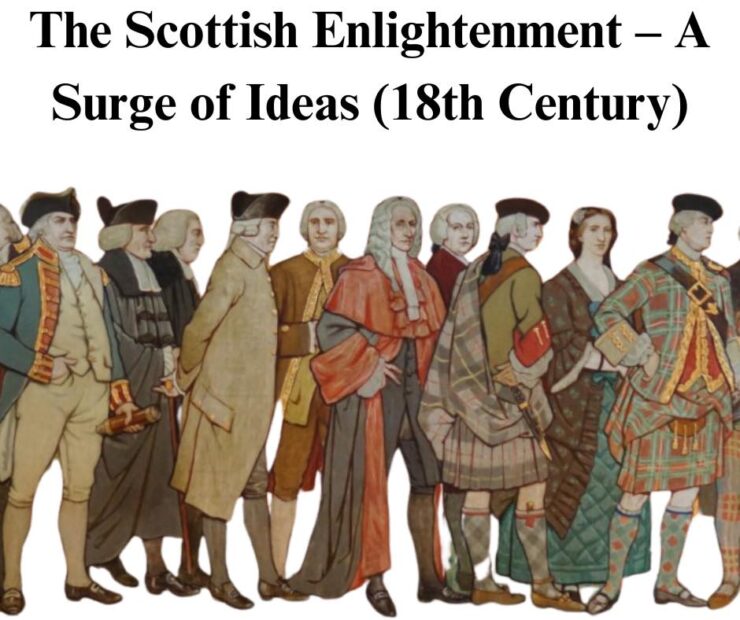
The Scottish Enlightenment – A Surge of Ideas (18th Century)
In the 18th century, Scotland transformed into one of the most intellectually vibrant places on Earth.
This period, known as the Scottish Enlightenment, produced some of the greatest thinkers in economics, philosophy, science, engineering, and education — shaping not only Britain but the modern world.
What Sparked the Scottish Enlightenment?
•After the political union with England in 1707, Scotland retained its unique education system and cultural identity.
•A focus on reason, empirical science, and individual liberty ignited new ways of thinking about society and humanity.
Key Figures:
•Adam Smith – Father of modern economics; author of “The Wealth of Nations.”
•David Hume – Philosopher who revolutionized thought on human nature, skepticism, and empirical evidence.
•James Watt – Inventor and engineer whose improvements to the steam engine powered the Industrial Revolution.
•Adam Ferguson, Francis Hutcheson, Thomas Reid, and many others contributed profound insights in various fields.
Impact:
•Creation of modern capitalist economics, philosophical empiricism, and advances in science and education.
•Foundations for political liberalism, democracy, and human rights ideals.
•Inspired movements like the American Revolution and later European Enlightenment thinkers.
The Scottish Enlightenment wasn’t just about intellectual debates —it was a profound reshaping of how we understand humans, society, and progress.
Its legacy still pulses through our institutions, sciences, economies, and political systems today.
